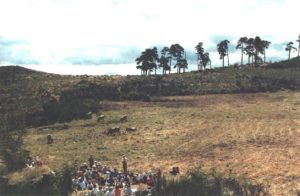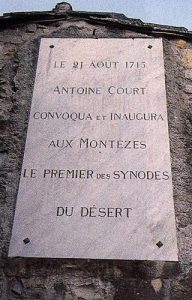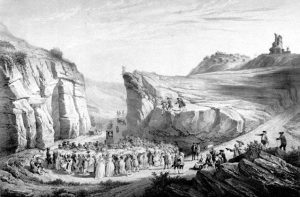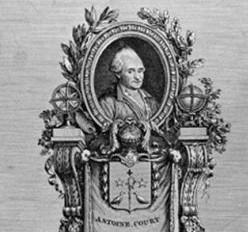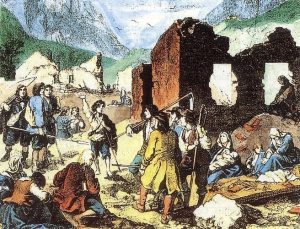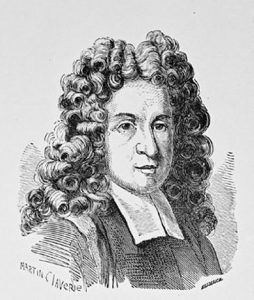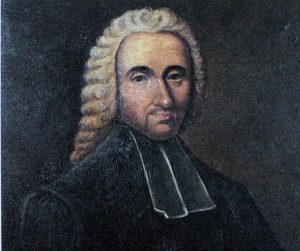The restorer of Protestantism
He was born in Villeneuve-de-Berg in Vivarais. His family was closely linked with the Reformed faith at a time when secrecy was the only option if one wanted to survive. He was christened in the Catholic faith, as the law required, but he would attend the illegal gatherings of the “Church of the Desert”.
As early as 1713, when he turned eighteen, he started preaching and, very soon, moved away from the prophesying that was commonly practised during the “Church of the Desert” gatherings.
« From then on I declared myself against what was called inspiration and strove to find where it, and the misuse, came from ».
The Montèzes synod : the first synod of the "Church of the Desert"
He immediately realised that reorganisation of the Reformed churches was urgently needed to put the emphasis back on its pastoral role.
In 1715, a meeting took place in Montèzes, near Monoblet (Gard). It was the first synod of the “Church of the Desert” and it attracted a few preachers and worshippers. Antoine Court had the following decisions made :
- Restoring the discipline of the Reformed Church
- Reorganising the consistories and synods
- Training new preachers
That was no easy task, given the risks produced by secrecy.
In 1718, Antoine Court was consecrated pastor by former Camisard Pierre Corteiz who had himself been consecrated in Zurich.
Towards the end of 1720, he went to Geneva for two years to complete his training. There, he also established relationships that proved very useful in bringing the “Churches of the Desert” out of isolation.
When he returned to France, he married Etiennette Pagès.
In 1729, he took refuge in Lausanne where he organised the Seminary to train new pastors of the “Churches of the Desert”.
He only went back to France once, in June 1744, for the fourth “National Synod of the Reformed Churches of the Desert”, which convened in the Lower Languedoc. At the synod nine provinces were represented by ten pastors and twenty-four elders, which demonstrated the importance of the movement for the restoration of Protestantism in France.
Antoine Court died in Lausanne in 1760.
He had a son : Court de Gébelin.
Getting the "Churches of the Desert" better known
Antoine Court meant to break away from prophetism. In the same way he meant to move away from the Camisards and their views as he abhorred, for example, any rebellious violence. But against the wishes of the “Churches of the Refuge”, he advocated meetings of the « Churches of the Desert », and so, illegality.
At the synod in 1744, he was appointed “superintendent of the Churches”, taking over after Benjamin Du Plan.
In addition, he kept up a wide European correspondence and published several works meant to get the Reformed community known during those troubled times, and to demand the right to freedom of conscience : The Impartial French Patriot (Le Patriote français et impartial) in 1756, and The History of the Troubles in the Cevennes or of the War Waged by the Camisards (l’Histoire des troubles des Cevennes ou de la guerre des Camisards) in 1760.
He also wrote his Memoires (Mémoires), which gave him the opportunity to justify leaving France. Indeed, from the Refuge he had been able to do a lot of work supporting « Churches under the rule of the cross ».

